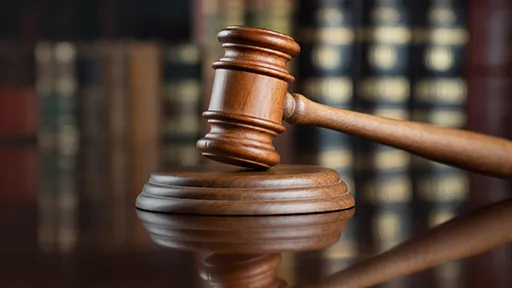As the 2023 general elections get nearer and the season of politicking ripens, Nigerians are again full of apprehensions about how to achieve a free, fair and credible electoral process that would consequently lead to a peaceful change of baton from one democratically elected president to another. These fears were, however, doused by the Inspector-General of Police, Usman Baba, when he recently announced the establishment of the Electoral Offences Desk (EOD) at the Force Criminal Investigations Department (FCID). The office will be supervised from the Force Headquarters in Abuja, with the Commissioner of Police, FCID, as the Desk Officer.
According to the Force Public Relations Officer, Muyiwa Adejobi, IGP Baba equally approved the setting up of the unit at State Commands nationwide. The Assistant Commissioners of Police in charge of the Criminal Investigation Departments will serve as State Desk Officers. Adejobi said the Electoral Offences Desk Officers are expected to collate and investigate all electoral offences and complaints received from members of the public.
- Soldier kills fuel attendant in Niger
- Lull in ministries as Buhari yet to replace Amaechi, Onu, others
The unit in respective State Commands will determine the strength of cases in line with the amended Electoral Act 2022 and thereafter proffer charges before courts of competent jurisdiction for necessary legal actions. The IGP tasked the unit to commence its activities immediately with cases that may have been recorded during pre-election activities such as screening of candidates, party conventions and primaries.
It would be recalled that the National Assembly in 2019 re-introduced the Electoral Offences Commission Establishment Bill, which passed its first reading at the Senate on Wednesday, November 27, 2019. Before then, the Justice Mohammed Uwais-led Electoral Reform Committee had recommended the establishment of an Electoral Offences Commission to deal with the prosecution and punishment of electoral offences. Recall also that the same Electoral Offences Commission Bill was passed by the 8th Assembly but failed to receive presidential assent for the only reason that the passage of the bill came on the heels of the 2019 general elections.
On July 13, 2021, the Senate after due legislative procedures again passed the Bill for the establishment of the Electoral Offences Commission under which anyone caught snatching voting materials during elections shall, upon conviction, be liable to 20 years imprisonment without an option of fine. Several other electoral offences have been captured in the bill with appropriate sanctions recommended for persons found guilty. Regrettably, 12 months after the bill was finally passed into law by the Senate, President Muhammadu Buhari is yet to assent to it in spite of all the imperatives that make an Electoral Offences Commission a necessity. Besides, INEC has over the years failed to prosecute electoral offenders in accordance with the provisions of sections 149 and 150(2) of the Electoral Act (as Amended). For example, not up to one per cent of the 870, 000 and the over 900, 000 alleged electoral offences recorded respectively in the 2011 and 2015 general elections were prosecuted by INEC.
If the Electoral Offences Commission Bill is not signed or vetoed before the end of the current legislative session on May 29, 2023; it would, for the second time, lapse with the session again. Given the insinuation that the bill is unlikely to become an Act before the 2023 elections even as the country stands in dire need of free and fair elections; IGP Usman Baba’s foresight to strategically position the police to fill the vacuum created by the absence of an Electoral Offences Commission is laudable. Without any prejudices, it is believed that the Electoral Offences Desk would forestall or at least reduce incidences of election-related violence that hitherto characterised every round of general elections in Nigeria.
However, antecedents of the role played by the police in previous elections have prompted some Nigerians to express reservations about the Electoral Offences Desk announced by IGP Baba. Politicians have always alleged that no rigging of the electoral process ever succeeded without police connivance. It is public knowledge in Nigeria that snatching ballot boxes and mutilation of election results have always happened under police watch. Nonetheless, Nigerians are prepared to give IGP Baba the benefit of doubt and the support required to make the Electoral Offences Desk serve the purpose for which it was created so long as the initiative is not denied the political will that would make it function. Since the devil is usually in the details, we expect IGP Baba to put in place all the necessary operational guidelines and logistics that would make the Electoral Offences Desk succeed.
It is time for the police to turn a new leaf in election matters and walk its talk; from top down the ladder. To make the Electoral Offences Desk succeed in its mandate, adequate orientation on the operations of the new unit should be provided to the rank and file of the police. There should also be deliberate synergy between the police, INEC and other relevant stakeholders. We urge the electorate and the politicians to also do their part in ensuring free and fair elections. The fact that over 800,000 and 900,000 cases of electoral offences were recorded in 2011 and 2015 respectively does not speak well. To actually make the Electoral Offences Desk work is, indeed, a task that must be accomplished under IGP Usman Baba.

 Join Daily Trust WhatsApp Community For Quick Access To News and Happenings Around You.
Join Daily Trust WhatsApp Community For Quick Access To News and Happenings Around You.

